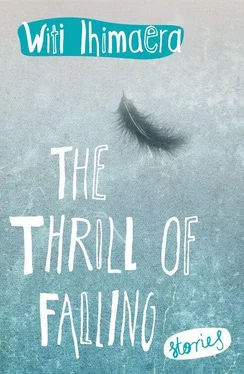Other works consulted were J.C. Beaglehole (ed.), The Journals of Captain James Cook, Vol I: The Voyage of the Endeavour, 1768–1771 , Cambridge University Press, 1955; Te Rangi Hiroa (Peter H. Buck), Explorers of the Pacific: European and American Discoveries in Polynesia, Bernice P. Bishop Museum, Hawai’i, 1953; Captain Cook in New Zealand: Extracts from the Journals , A.H. & A.W. Reed, Wellington, 1951; Alistair Maclean, Captain Cook , Collins, 1972; Sir James Watt, ‘Medical Aspects and Consequences of Cook’s Voyages’, in Captain James Cook and His Times , Robin Fisher and Hugh Johnston (eds), Douglas & McIntyre Ltd, 1979, pp. 138, 140; Alex Calder, Jonathan Lamb and Bridget Orr, Voyages and Beaches: Pacific Encounters, 1769–1840 , University of Hawai’i Press, 1999. Joan Druett’s Tupaia (Random House, 2011) was also consulted and is an excellent biography for those seeking further information.
When the ships of James Cook’s second expedition arrived in New Zealand, Maori clamoured for Tupaea. The news that he had died was received first with disbelief, and then with deep mourning. ‘Aue, Tupaea!’ James Cook himself acknowledged the topic when he visited Queen Charlotte Sound. Here are extracts from his journal of 4 June:
One of the first questions these strangers asked was for Tupia: and when I told them he was dead, one or two expressed their sorrow by a kind of lamentation, which to me appeared more formal than real … It may be asked, if these people had never seen the Endeavour, nor any of her crew, how could they become acquainted with the name of Tupia, or have in their possession (which many of them had) such articles as they could only have got from that ship? To this may be answered that the name of Tupia was so popular among them when the Endeavour was here, that it would be no wonder if, at this time, it was known over great part of New Zealand, and as familiar to those who never saw him as to those who did. Had ships of any other nation whatever arrived here, they would have equally inquired of them for Tupia …
In New Zealand, ’Oro is comparable to Rongo, God of Agriculture, and also to Koro, patron of dance and desire.
Acknowledgements
As always, grateful thanks to my publisher, Harriet Allan, and the staff at Random House New Zealand, and to Anna Rogers, my editor, for our collaboration and her advice and work. Thanks also to Ray Richards, my agent, my employer Manukau Institute of Technology, and the New Zealand Arts Foundation for a grant in 2009 which enabled me to write The Thrill of Falling .

Witi Ihimaera has written thirteen novels, among them The Whale Rider in 1987, and six collections of short stories and works for children. His last novel was The Parihaka Woman in 2011, and The Thrill of Falling is his seventh short story collection.
Ihimaera has also had careers in teaching, theatre, opera, film and television. His work was set to music by well-known contemporary musicians in Ihimaera , commissioned for the 2011 Auckland Arts Festival. His words for Kaitiaki , composed by Gareth Farr, were presented at a Beethoven concert by the New Zealand Symphony Orchestra in September of the same year. He has travelled extensively, most recently to festivals and conferences in Britain, Germany and New Caledonia.
He lives in Auckland.













